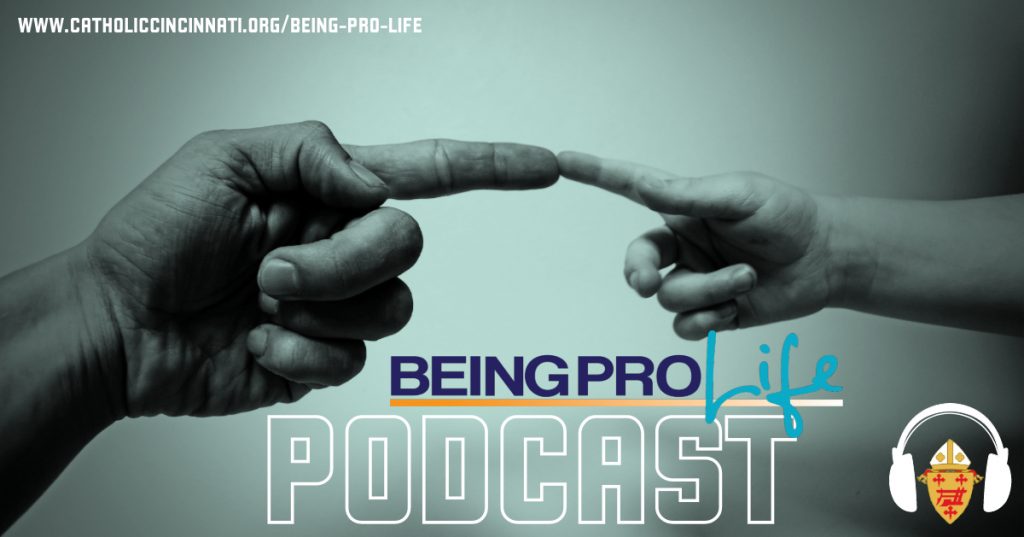Being Pro-Life: Mental Illness: It’s More Common Than You Think by Bob Wurzelbacher
 Gail and Scott have a son who started exhibiting difficult behaviors by the age of three.
Gail and Scott have a son who started exhibiting difficult behaviors by the age of three.
As he grew, he showed an assortment of extreme issues such as defiance, agitation, high anxiety and even delusions. Getting him to attend school and do homework became increasingly difficult, and ultimately he was unable to graduate from high school. Throughout the years they struggled to find doctors who could help. Even support from their faith community to cope with their lifelong daily struggle was unavailable. They suffered mostly alone, not unlike so many others who have or care for those with mental illness.
Prevalence
There are levels of severity with mental illness. The most debilitating, such as schizophrenia and severe bipolar disorder, will affect about four percent of the U.S. adult population. However, according to the National Alliance on Mental Illness, about 20 percent of adults will experience some form of mental illness each year, enough to negatively impact their work and family lives, and 46 percent will experience mental illness at some point in their lifetime.
Two of the more common mental illnesses are anxiety and depression. This isn’t merely being sad or nervous. Clinical depression and anxiety are serious illnesses, which can make it extremely challenging to drive to work or even get out of bed.
Treatment
One problem with mental illness is that it can be difficult to treat. Physical ailments can generally be diagnosed more easily through quick observation or blood tests. Mental health, however, is much less clear. It can take multiple conversations or behavioral observations with a psychiatrist to get a diagnosis. Even in the best case scenario, trying to find the right medication to help typically involves a lot more time.
Additionally, success with one medication might help temporarily, but after some time patients stop responding to it and need to find another option. That kind of transitory treatment success is common with mental illness.
There is also more of a stigma with mental illness. People of faith often treat people who suffer with very real problems like depression or high anxiety as if their only issue is that they need to pray more. People with mental illness are not morally depraved – they actually have an illness, and it may have a physical cause that is difficult to diagnose. Yes, people with mental illness can use the prayers of the faith community, but their mental illness was not caused by a lack of relationship with God, any more than someone’s broken leg was a result of not having spent enough time in prayer the night before.
What can we do?
Begin by better educating yourself. The United States Conference of Catholic Bishops (USCCB) has a brochure titled, The Person With Mental Illness: Bearing God’s Image, and the California Catholic Conference has a great document called Hope and Healing.
People with mental illness and their caregivers also need spiritual support. Resources like Mental Illness and Faith Community Support for Recovery or 16 Specific Actions Faith Communities Can Take can help you start a mental health ministry in your parish.
Be aware. If someone you usually see at Mass stops attending, reach out. They may be suffering from depression. If you know of someone dealing with mental health issues, offer help like you would to someone with a physical disability. Bring them a meal or offer to pick something up at the store for them. These can go a long way in helping people with their recovery. Above all, just treat people who suffer from mental illness with the respect and dignity everyone deserves.
All these resources and can be found on our website, catholiccincinnati.org/being-pro-life.
UPCOMING BEING PRO-LIFE PODCASTS
December 31: Deacon Ed Shoener founder of the Catholic Mental Health Institute
January 7: Scott and Gayle, parents of a child with mental illness
January 14:Peter Capobianco, an adult with mental illness
January 21: Chris Miller, co chair of the Council on Mental Illness of NCPD
TUNE IN AT: catholiccincinnati.org/being-pro-life













